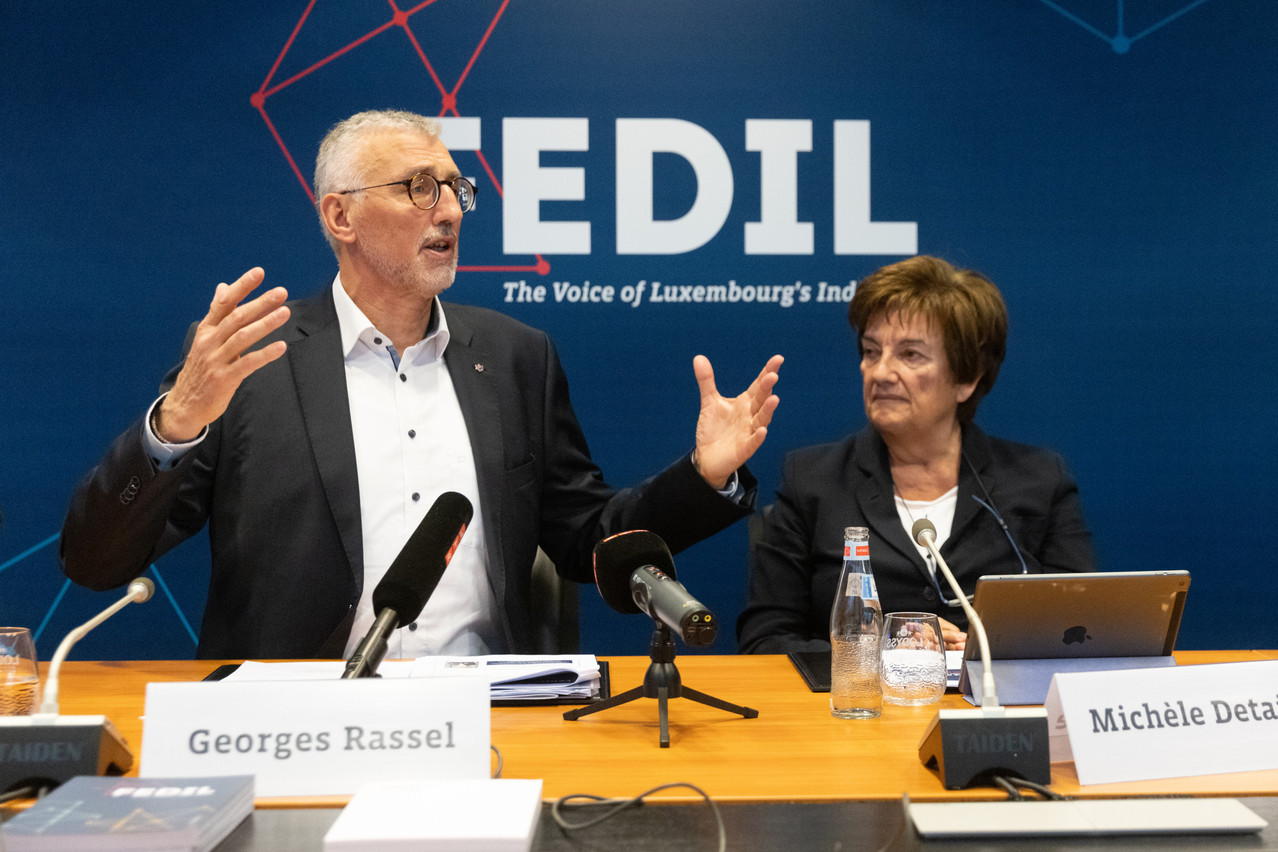Industry in Luxembourg is export-oriented, accounting for 25% of GDP and 120,000 direct jobs. “It is a very important foundation for the economic life of our country,” says . In drawing up the work programme for his presidency, he consulted the federation’s 715 members, which resulted in the following statement: “Fedil’s vision is to develop and diversify a strong, low-carbon and highly productive economy, driven by the exploitation of new market opportunities or niches, technological progress, the development and attraction of talent and international collaboration.”
The European level
Rassel’s first priority is Europe, where “the political rebalancing needed to relaunch the economy with a high-performance European industry” is at stake. In this election period--which doesn’t end with the elections on 9 June, he says, but when the new commission is actually sworn in--he is calling for a pause in the tightening of a regulatory framework that has become “stifling” and “difficult for our businesses to manage.”
Rassel also calls for the integrity of Europe’s internal market to be restored, saying that it has been “jeopardised by the temptations of individual countries to go it alone. We have everything to gain by working together so that the continent can position itself in relation to all the major players, whether governments or large companies.”
In his view, such unity will enable companies “to better seize the opportunities offered by technological change, and thus realise Europe’s industrial ambitions.” These ambitions are critical given the rise of geopolitical perils, he adds. “Europe needs to realise that there are strategic industries that we need to help become profitable.” On 7 May, Fedil will be inviting candidates to debate the issue.
The Luxembourg level
In Luxembourg, of course, the elections are already over, and Fedil is delighted to see “a government majority that has announced its desire to unlock the growth potential of our economy by acting on the levers of speed of action, simplification of procedures, taxation and procedures.” No blank cheques, however: “Good intentions must be followed by action.”
Fedil expects the government to address strategic issues such as the availability of land and the management of new modern business parks; infrastructure; energy supply; the country’s positioning in the energy transition and on the path to decarbonisation; and the financing of industrial and technological development. In terms of financing, Fedil is calling for the Société nationale de crédit et d’investissements (SNCI) to be placed at the centre of the game and for venture capital activities to be encouraged. The federation is also calling for the creation of new synergies with government action, in cybersecurity for example: “It is important for Luxembourg companies to be involved in these policies. An involvement that must go beyond the simple purchase of products or services.”
The company level
Innovation is a major concern for Fedil. “A company that fails to innovate is doomed to failure.” Rassel is calling for the skills and resources of public research players to be harnessed to help modernise and strengthen the industrial fabric, and for public-private partnerships to be developed. He hopes to see diversification and development of the business fabric through support for research and development activities.
“The subject of artificial intelligence is on the minds of virtually all businesses. Everybody is asking themselves the question of the relevance and degree of implementation of artificial intelligence solutions in their processes and administrative work.” That said, Fedil is calling for the country to “be prepared for the changes inherent in AI, to find the right regulatory balance between precautions and opportunities, and to identify and exploit the areas of expertise linked to AI to make them a focus of economic development for Luxembourg.”
Labour also remains a key issue for Fedil. It is renewing its calls for wage costs to be kept under control, advocating better training to match supply and demand, and, to attract--and retain--talent, promoting mobility and the reception of workers. On the issue of working time, which was one of the themes of the last legislative election campaign, Rassel is calling on the government to create a flexible framework that gives companies all the freedom they need to negotiate with employees. “We need to be flexible and agile because people’s needs can change over the course of a year. Modernising the organisation of working time must be done in the interests of workers and employees.”
This article in Paperjam. It has been translated and edited for Delano.
